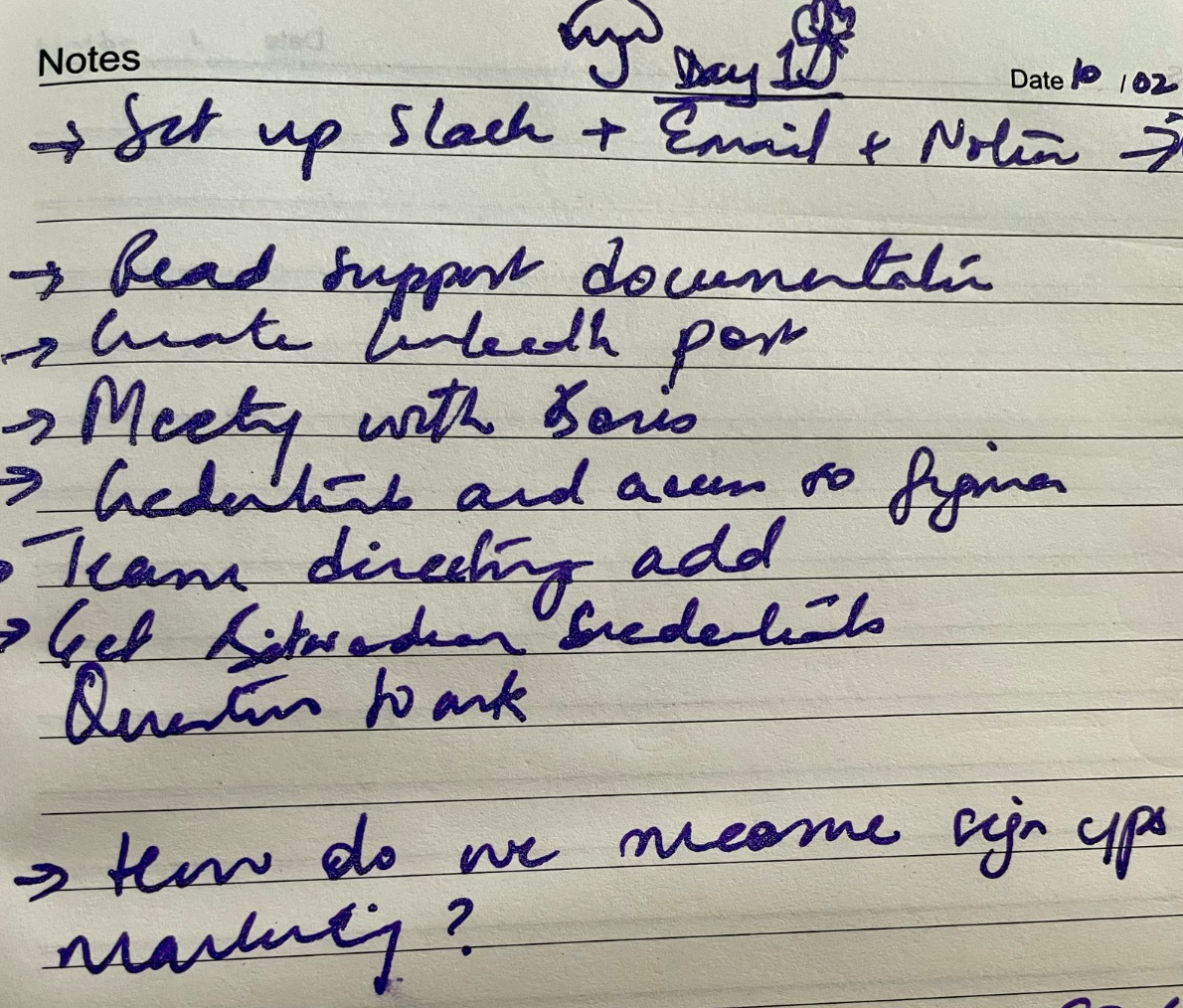My Onboarding Journey at WP Umbrella

Before I even accepted the offer from WP Umbrella, I did what any cautious person would: I stalked.
I read every customer review. Checked out the founders on LinkedIn. Scrolled through past blog posts and product updates.
During that time, I came across a quote from Aurelio, CEO and co-founder of WP Umbrella, “Building in public the company I wish I had when I was an employee.”
It stuck with me for two reasons.
First, we’ve all heard companies promise amazing cultures that rarely match reality. It felt almost like the kind of workplace people pretend to be on careers pages.
Second, it showed vulnerability and honesty. It revealed the human side of leadership—someone who understands what employees need and want in a workplace.
So, when I was offered the role of a content marketer, I said yes.
For context, WP-Umbrella makes life easier for WordPress agencies and freelancers. It’s a plugin that helps agencies monitor and manage multiple websites from one dashboard.
Not Just Another Monday

I’ve worked at startups before. I expected some chaos. Instead, I was met with a well-structured onboarding process, and that too, a day before my joining. Everything was set and in place, and all I had to do was accept all the invitations, sign up to experience the tool and, of course, meet the team.
Since we work across different time zones, the team thoughtfully shared all my credentials a day before so I wouldn’t feel lost on day one. Waiting for me was a detailed onboarding checklist covering everything I needed to do over the next two weeks. From setting up Slack and Notion to completing specific product tutorials and learning the basics of WordPress, nothing was left to guesswork. No awkward “what should I be working on?” moments.
My first day also happened to be our weekly stand-up, where I met everyone on the team. And throughout that week, I had one-on-one meetings with each team member. With just a handful of people in our company, these meetings felt personal and welcoming rather than overwhelming. You get to know everyone quickly in a small team!
Learning the Product from the Ground Up
Instead of just handing me marketing materials and telling me to write, WP Umbrella took a different approach. I was onboarded as a customer support agent, even though I was hired as a content marketer. This wasn’t a surprise—they told me beforehand this was the best way to understand WordPress and the tool from the inside out.
The customer support manager, Boris, was always available to answer my questions. I tested the product hands-on and read support docs the entire week. I created my first website and installed WP Umbrella to test the product thoroughly. By the end of my first week, Boris gave me a small quiz to ensure I had grasped the core concepts.
We reviewed the answers together, and I finally got access to the helpdesk platform to see the types of tickets customers submit. Managing my first actual support ticket was a novel experience that gave me invaluable product knowledge. I wasn’t just learning about the product. I was learning about our customers, their real-world issues, and what clarity looks like when someone is stuck.
Meanwhile, I was also brainstorming content and marketing ideas on the side. I started optimizing old blogs and fully transitioned to marketing work when the team was confident I had solid product knowledge.
Amidst all this, what I appreciated most was the trust. There was no micro-managing, no need to “prove” myself every day. It was all open feedback, encouragement, and collaboration.
The Astonishment Report
At the end of my first month, I had to submit something called an Astonishment Report. It was unlike anything I’d done before. The goal was to list all the things that surprised me about the company, both good and bad.
We had a great session discussing my observations. This practice provides a refreshing new perspective to people already neck-deep in the company’s day-to-day operations. In my report, I highlighted several things that truly astonished me:
- The genuine implementation of values: Many companies have values plastered on their walls but rarely live by them. At WP Umbrella, Toltec wisdom isn’t just a talking point; it indeed guides our daily interactions.
- Customer-centric onboarding: Starting my journey as a support agent rather than jumping straight into content marketing showed me how seriously the company takes product understanding.
- Immediate feedback loops: There were some points that could be tackled on-the-spot, and Thomas, our CTO and co-founder, took no time to fix the issue for me and anyone who would be joining the company in the future.
3 Key Points for a Successful Onboarding
Based on my experience and reflecting on what made my onboarding successful, here are three essential elements any company should consider:
- Have a clear roadmap and structure: The pre-planned onboarding checklist gave me confidence and direction from day one. Knowing what to expect reduced anxiety and helped me focus on learning.
- Encourage hands-on product experience: Nothing beats using the product and experiencing it from the customer’s perspective. This approach builds deeper product knowledge than any documentation could provide.
- Foster genuine team connections: One-on-one meetings with team members, participation in weekly stand-ups, and open communication channels made me feel like part of the team immediately.
Final Thoughts
One month in, I can confidently say this company lives by its values. It’s not for show. It’s not a marketing gimmick. It’s real.
WP Umbrella shows when a company takes onboarding seriously, it’s often a sign they take everything seriously—their product, their customers, and most importantly, their people.
For companies that claim to have the best work culture, I’ll say keep dreaming. We’re living it.
